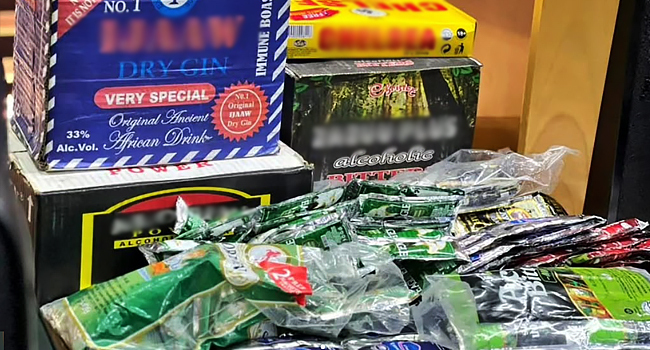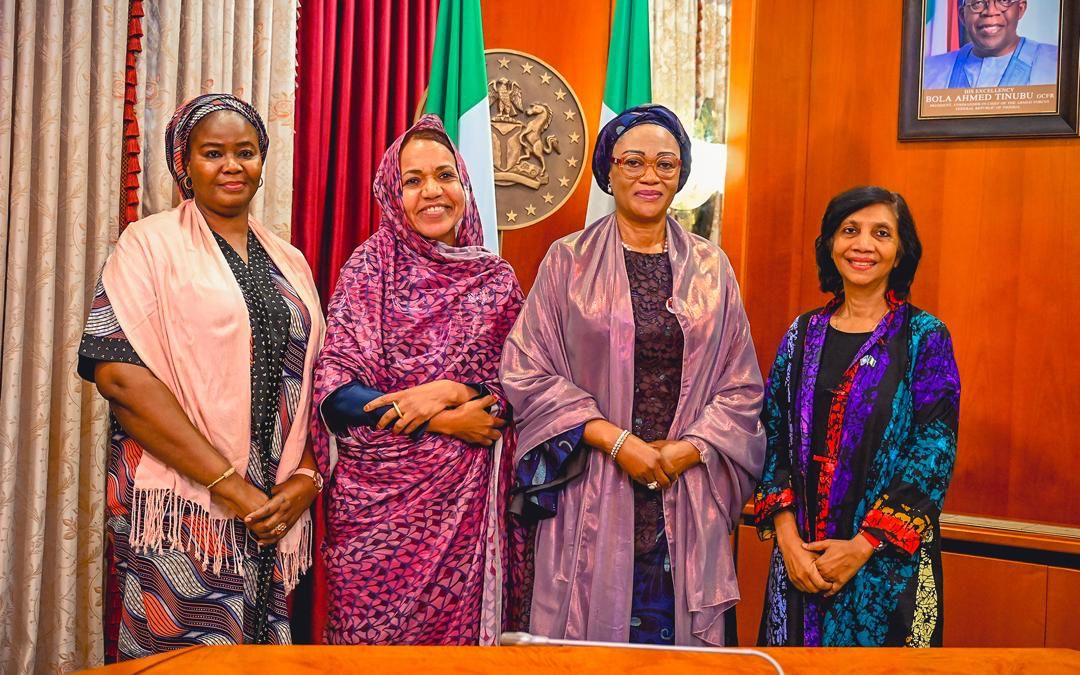Why Nigeria’s Ban On Sachet Alcohol Is A Prescription for Public Health
BY AHMED TIJANI IBN MUSTAPHA

In a nation often gridlocked by debate, the Nigerian Senate’s firm stance against sachet alcohol represents a critical intervention for public health.
The 10th Senate’s recent resolution to enforce the ban on sachet alcohol production by December 31, 2025, has ignited a necessary firestorm. The conversation is, predictably, mixed. On one side, cries of “elitism” and economic hardship for the poor, on the other, a long-overdue sigh of relief from public health professionals and community leaders.
Let us be unequivocal, the Senate’s move is not an attack on the poor but a profound defence of them. It is a courageous, data-driven step to pull Nigeria back from the precipice of a full-blown public health crisis. This is not nanny-state politics; it is a critical triage for our national well-being.
The primary argument for sachet alcohol is its affordability. At just ₦150 to ₦200 per sachet, it is within reach for the most vulnerable. But this is a devil’s bargain. This very affordability is what makes it so perilous. We are not talking about an occasional beer; we are talking about potent, often unregulated spirits sold like candy, enabling consumption patterns that are destructive and continuous.
The data paints a grim picture. A 2022 study by the Centre for Research and Information on Substance Abuse (CRISA) revealed that over 70% of alcohol consumed in Nigeria is in the sachet and pet bottle category.
The World Health Organization (WHO) estimates that alcohol is responsible for over 3 million deaths globally each year, and a significant portion of this burden falls on low and middle-income countries where consumption is rapidly increasing. In Nigeria, the unbridled access to cheap, high-strength alcohol is fueling a silent epidemic.
The dangers are not abstract, they are visible in our communities, our hospitals, and our homes.
The sachet’s design is a marketer’s dream and a parent’s nightmare. Easily concealed, cheap, and potent, it is the perfect gateway for underage drinking. Recent studies show a alarming 55.8% drinking prevalence among Nigerian youths, up from 30% in 2015 and 34% in 2021 . This exponential growth correlates directly with the proliferation of sachet alcohol. The WHO’s 2018 report already showed Nigeria had one of Africa’s highest rates of heavy episodic drinking among 15-19 year olds at 22.5% . When schoolchildren can purchase a shot of liquor for the price of a sweet, we are normalizing alcoholism in a generation. Reports confirm that children as young as 10 years old can purchase these sachets for as little as ₦100, raising fears of irreversible brain damage and addiction .
The Nigerian Medical Association (NMA) has consistently linked the rise in cases of liver cirrhosis, pancreatitis, and alcohol-related mental disorders to the proliferation of cheap spirits.
The WHO directly links harmful alcohol use to more than 200 health conditions, including infectious diseases like tuberculosis and HIV/AIDS, non-communicable conditions like liver cirrhosis, and various cancers . Each sachet sold at ₦50 ultimately contributes to a healthcare cost running into hundreds of thousands of Naira for treating end-stage liver disease, a cost borne by families and an already overstretched public health system.
The link between alcohol abuse and social ills is indisputable. From domestic violence and road traffic accidents to absenteeism and lost productivity at work, the ripple effect is staggering.
Senator Asuquo Ekpenyong, in his pivotal motion, rightly warned that these beverages fuel “youth addiction, road accidents, school dropouts, domestic violence and other social vices”.
The National Drug Law Enforcement Agency (NDLEA) has explicitly noted that alcohol consumption by drivers at motor parks is directly contributing to road crashes, with alcohol-impaired driving responsible for nearly 50% of road fatalities globally . We are sacrificing long-term national productivity for short-term, predatory profit.
The Manufacturers Association of Nigeria (MAN) and the Distillers and Blenders Association of Nigeria (DIBAN) estimate that 500,000 jobs will be affected, with some projections rising to 5.5 million when considering the broader value chain. This is a serious concern in a challenging economy.
However, this argument ignores critical facts. First, this ban follows a five-year Memorandum of Understanding (MoU) signed in 2018 between the industry, the Federal Ministry of Health, and NAFDAC, agreeing to a phased ban.
Manufacturers have had years to adapt their operations and transition to safer, more sustainable packaging. Second, the economic cost of not implementing the ban is far greater. The cumulative burden on our healthcare system, the loss of productivity from alcohol related illnesses and deaths, and the social costs of violence and accidents create a massive drain on the national economy. What is the price of a generation’s potential?
In the face of powerful lobbying from the distillers’ association and the easy populism of opposing the ban, the Nigerian Senate has chosen to stand on business. This is what leadership looks like. True governance is not always about giving the people what they want, but what they need for a safe and prosperous future.
We must give particular credit to the mover of this timely motion, Senator Asuquo Ekpenyong. His motion cut through the noise and placed the health and security of the Nigerian people, particularly our youth, at the forefront of the national agenda. It took foresight to recognize that the economic argument for sachet alcohol is a myopic one, dwarfed by the colossal social and healthcare costs we are already incurring. By insisting that “no further extensions would be tolerated,” Senator Ekpenyong has provided the legislative backbone for a policy that will be remembered as a turning point.
The Senate’s unanimous support for this motion, as echoed by Senator Anthony Ani who described the products as a “slow poison spreading among the youth,” and Senate President Godswill Akpabio who called it “a moral and patriotic stand,” demonstrates a rare and commendable unity of purpose. They have drawn a line in the sand, putting regulatory integrity and public health above private profit.
The mixed public conversation is understandable. Change is always met with resistance. But we must not confuse the loudness of a voice with the righteousness of its cause. The Senate, in this decision, has listened to the quieter, more sober voices of doctors, community leaders, and data.
This ban is not an end, but a beginning. It is the start of a more conscious approach to public health policy in Nigeria. It is a declaration that the well-being of our citizens is not for sale, not even for ₦50. The Senate has taken a definitive stand. It is now incumbent upon the executive arm, particularly NAFDAC and the Federal Ministry of Health, to enforce this ban without compromise and to expedite the release of the long-awaited National Alcohol Policy .
For this courageous, life-saving stand, the 10th Senate deserves our full and unequivocal support. They have chosen to protect Nigeria’s future, and history will judge this decision kindly.
Ahmed Tijani Ibn Mustapha is a Senior Legislative Aide to the Senate President











